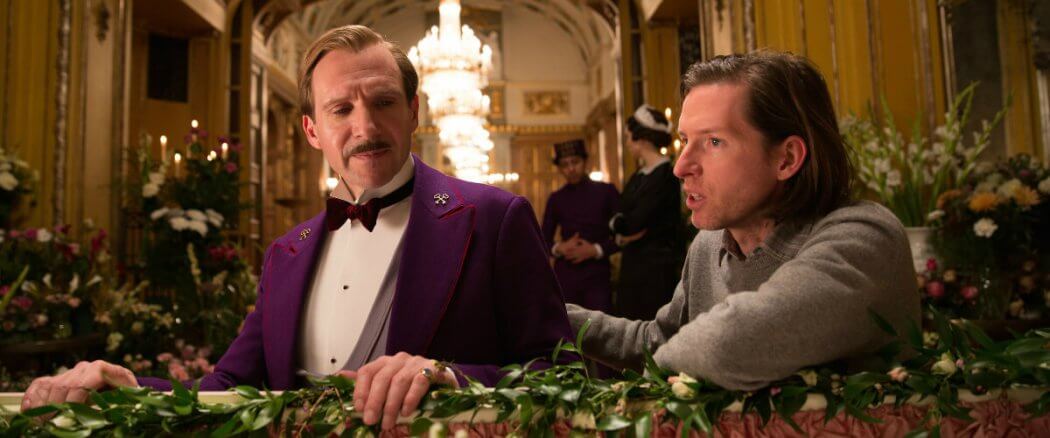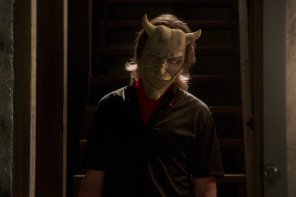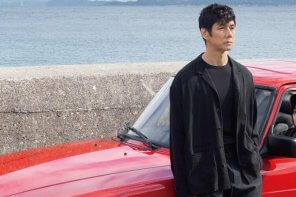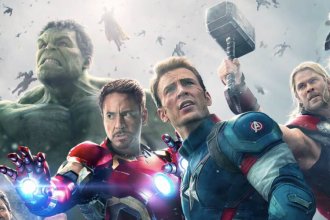Blake wrote of the marriage of Heaven and Hell. If I have written of their Divorce, this is not because I think of myself as a fit antagonist for so great a genius, nor even because I feel at all sure that I know what he meant. But in some sense or other the attempt to make that marriage is perennial. The attempt is based on the belief that reality never presents us with an absolutely unavoidable “either-or”; that granted skill and patience and (above all) time enough, some way of embracing both alternatives can always be found; that mere development or adjustment, or refinement will somehow turn evil into good without our being called on for a final and total rejection of anything we should like to retain. This belief I take to be a disastrous error. You cannot take all luggage with you on all journeys; on one journey even your right hand and your right eye may be among the things you have to leave behind. We are not living in a world where all roads are radii of a circle and where all, if followed long enough, will therefore draw gradually nearer and finally meet at the centre: rather in a world where every road, after a few miles, forks into two, and each of those into two again, and at each fork you must make a decision…
-C.S. Lewis, The Great Divorce
The act of restoration is an inward movement, and eventually requires a total about-face. I love the image of this road that Lewis uses (assumedly borrowed from Pilgrim’s Progress), and this notion (addressed later in the book’s introduction) of how we sometimes need to trace back to that right road; but above all else we cannot expect to remain on these inroads away from the face of Christ. I love this image because it fits the reality of a thing we are still in the process of… even when on the right track.
Be gracious with this image – it is not a call to “decision theology” in which God’s grace is about what we do more than what he has done; rather this is an image of our hearts: if faith is belief, belief affects our thoughts, which in turn change our actions; i.e. if I believe that gravity exists I am less likely to walk off of a tall building, or if I have faith in buoyancy I am comfortable swimming in a swimming pool (unless I have recently watched Jaws, then my faith that a degree of safety can be expected in the water is shattered). In any case the belief precedes action.
In many ways this is where the Pharisees went wrong. For them “faith” became a set of obligatory and dead actions in which one still retained sins of the heart and manipulation or justification of the Law in practice – they sought the aforementioned marriage of Heaven and Hell.
Either/Or
Either/or is a concept most famously expounded on by Søren Kierkegaard in his book of the very title. Briefly, Kierkegaard writes extensively on an internal change, a turning from self to God, from “I” to Christ (and therefore, also to our neighbor). This is the most important step of faith, this about-face, this turning to Christ.
A good summary is that either all of our acts are selfish (yes, even the good ones for those bring us status, recognition, and self-satisfaction), or they are done from a true state of humility in the presence of God’s Spirit and become self-less.
 Today, few directors capture the subtle initial change better than Wes Anderson. When you watch the restoration of his characters there is almost nothing noticeable in their outwardness – they still speak in an affectatious tone; they still dress with quirk and pomp; in fact very little of their personality even seems different – they are still larger than life characters stuck in a state of smallness. But the change they do undergo is dramatic because it is a shift in their outlook (although ours stays the same) towards their importance (or now their lesser status), and the value of and love for those around them.
Today, few directors capture the subtle initial change better than Wes Anderson. When you watch the restoration of his characters there is almost nothing noticeable in their outwardness – they still speak in an affectatious tone; they still dress with quirk and pomp; in fact very little of their personality even seems different – they are still larger than life characters stuck in a state of smallness. But the change they do undergo is dramatic because it is a shift in their outlook (although ours stays the same) towards their importance (or now their lesser status), and the value of and love for those around them.
Wes Anderson’s directorial style is unique, quirky, and carries an essence from Bottle Rocket to The Grand Budapest Hotel that is purely Andersonian. The color, the art, the overhead and centralized shots, costumes, dialogue, and in many ways the story of broken relationships seeking restoration come through a distinct code only he has been able to put together.
When looking at the body of his work I see the strange works of redemption and the fledgling path of restoration. These are not family dramas in the way of Hallmark movies, but more the subtle changing of degrees that Kierkegaard illuminated. In the end these are works of shifted ideology – shifted from the self towards others.
Megalomaniacs Abound
In every Wes Anderson movie there is a loveable megalomaniac — maybe not loveable. Let’s restate this: In every Wes Anderson movie there is a character central to the story that is a megalomaniac. Some of them really are loveable… even if it is a love derived from the pathetic nature of their personhood. In Bottle Rocket it is Dignan, in Rushmore it is Max, Royal (and Eli Cash in many ways) in Tenenbaums, Steve Zissou, all the brothers in Darjeeling, Mr. Fox, and most recently M. Gustave in The Grand Budapest Hotel.
Although we might view these outrageous “triumphs of ego” as outlandish, we all probably have more in common with them than we are willing to admit. At least, for me, this is part of the appeal of an Anderson movie; these characters are either incredibly brave in certain respects, or too dim to realize how big of a jerk they are. I have relished the status of jerk; often it gives you a sense of freedom that is at the root of our separation from God, that makes Satan such an appealing character in Milton’s Paradise Lost.
But this is the essence of all sin – at its root it is an act of self-aggrandizement: “…your eyes shall be opened, and ye shall be as gods, knowing good and evil.” In order to see a change in these characters we first must see where they begin, to see the path they are walking currently, and, although they vary in detail, they all seem to be filled with self-gratifying pursuits: recognition is key to each of these characters whether it be a recognition of genius (as it is for Dignan, and Max) or for a recognition of status (as it is for Royal as father and M. Gustave as patron saint of patrons).
The Underlying Malaise
All the main characters in Anderson’s films seem to be people of genius and accomplishment, either through their own proclamation or through the film’s. What is incredible is that these people of accomplishment never seem satisfied in that accomplishment.
 A good case study might be Richie Tenenbaum of The Royal Tenenbaums. In the movie Richie is a star athlete, a superb tennis player, who crumbles at his peak on the grass of Wimbledon. Everyone is perplexed by how he could stumble in such a dramatic (and comical) fashion. His nose-dive performance coincides with the marriage of his adopted sister Margo, with whom Richie is in love. Throughout the Tenenbaums Richie is under the impression that his love for Margo needs to be fulfilled if his life is to be complete – this even leads to his attempted suicide (one of the single greatest scenes in recent memory). However, when they finally do attempt to consummate their uncertain love, it fails at the first kiss.
A good case study might be Richie Tenenbaum of The Royal Tenenbaums. In the movie Richie is a star athlete, a superb tennis player, who crumbles at his peak on the grass of Wimbledon. Everyone is perplexed by how he could stumble in such a dramatic (and comical) fashion. His nose-dive performance coincides with the marriage of his adopted sister Margo, with whom Richie is in love. Throughout the Tenenbaums Richie is under the impression that his love for Margo needs to be fulfilled if his life is to be complete – this even leads to his attempted suicide (one of the single greatest scenes in recent memory). However, when they finally do attempt to consummate their uncertain love, it fails at the first kiss.
Why?
It seems that all the externals we think we want cannot and will not bring satisfaction. Falling in love and marrying the guy/girl of your dreams is great, but it does not fill the malaise of everydayness with a sense of new unity. Our earthly consummations do not satisfy. This is at the heart of all of Anderson’s films.
In Bottle Rocket Dignan is under the impression that pulling off a great heist will a) prove his worth and b) give him the father figure he never had. In The Life Aquatic Zissou is in pursuit of the Jaguar Shark to vindicate himself to the critics calling him a liar and to avenge his friend Esteban. Upon reaching their personal zeniths (the heist for Dignan, and entering the presence of the Jaguar Shark for Zissou) there is a fleeting of this ideal’s value.
None of these characters found satisfaction in fulfilling their own dreams, but, in a sense, only in turning them over, only in surrender and love for one another do they find any meaning in their personal experiences of pain.
Steady Love of Another
Although the protagonists of Anderson’s movies tend towards the self-absorbed end of the spectrum, his heroes seem, for all intents and purposes, like complete push-overs. Ned Plimpton (Life Aquatic) suffers not only in the rejection of his possible father (Steve Zissou), but he is also used by Zissou to fund his “final expedition.” Ned’s entire inheritance and life savings is emptied for the sake of a man that will not even acknowledge his parentage.
In Grand Budapest Zero shows an undying kindness and loyalty to M. Gustave — it is this characteristic that makes him worthy to take up Gustave’s mantel. But these weak characters show a steadfast love of the story’s protagonist and provide the outward thinking that allows the selfishness of the other to be seen in the mirror (because it is not lorded over them, but is born with patience) and changed from within, and not merely by going through the motions of repaying kind deed with kind deed.
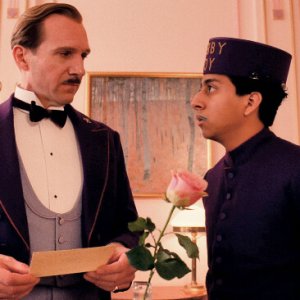 The genuine love for another is able to take place because they experience it from a person they respect, and a person who is willing to be honest yet gentle with them — because the reality for most egotistical people is that the front is put on to protect their fragility; it is hard to see when the gruff front is thrown out there, but breaking past that through repaying evil with good creates a powerful footing to stand with someone on.
The genuine love for another is able to take place because they experience it from a person they respect, and a person who is willing to be honest yet gentle with them — because the reality for most egotistical people is that the front is put on to protect their fragility; it is hard to see when the gruff front is thrown out there, but breaking past that through repaying evil with good creates a powerful footing to stand with someone on.
In the great Walker Percy novel The Moviegoer this is the precise and subtle change that takes place because of the love Binx experiences from his young half-brother. I think it took me three re-reads before ever picking up on the subtle changes of perception that Binx undergoes; but it is this love that is the guiding light out of life’s malaise, and this light is Christ shining within us.
Re-Watch with the Either/Or Lens
I am not arguing that Anderson makes Christian movies, but that maybe, just maybe he does make movies about characters who have backtracked several steps to that right road. And there is a lot we can learn from these humbling perspectives: patience, love of an enemy, and how fleeting the world’s satisfactions are… not to mention you will be exposed to incredible soundtracks.
This is easy to lose in the quirky and color-filled comedy – the human moments, the compassion for our fallen nature and the freedom that comes only through the love of another, and ultimately through the love of Christ. These movies may only be a single step towards the restoration promised us, but instead that walk, further down the path, is much like Zero’s response to the author near the end of Grand Budapest – some stories we keep for ourselves and our own reasons.

